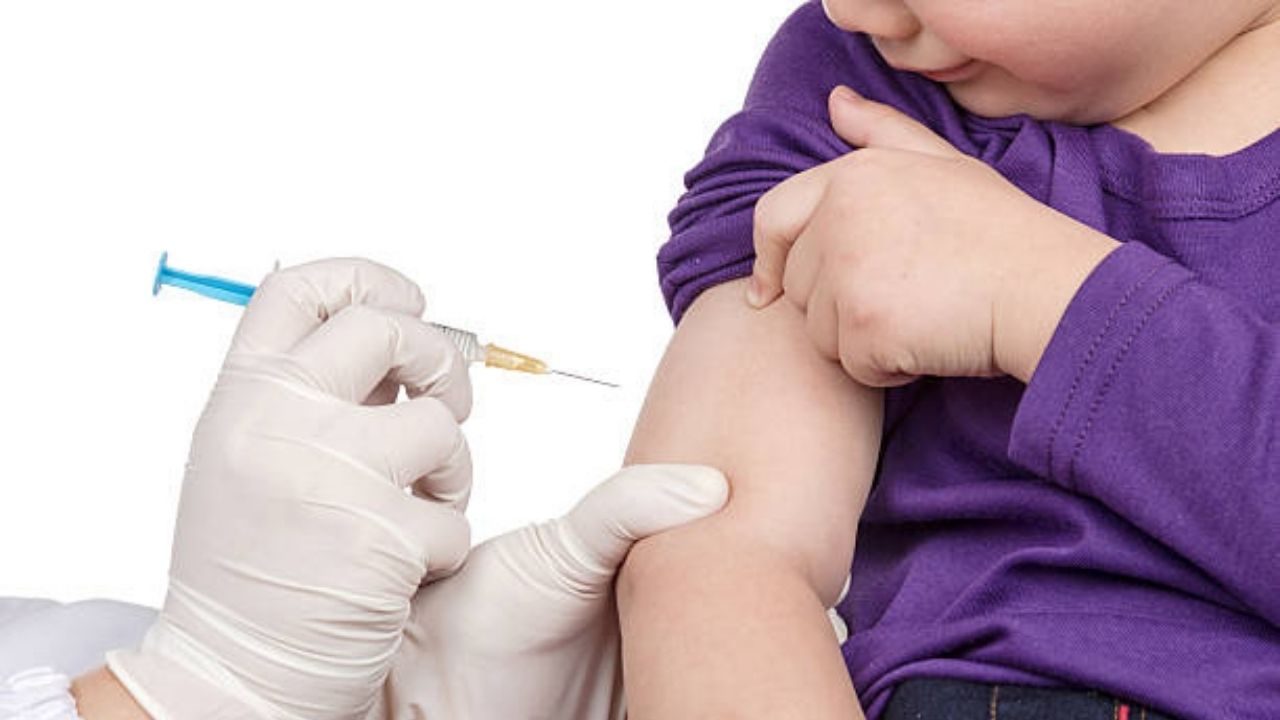With the diphtheria vaccination you can prevent the highly contagious, dangerous infectious disease. The primary immunization, consisting of several doses of diphtheria vaccine, is usually given in infancy. However, the effect of the diphtheria vaccination does not last for life – the vaccination must be refreshed regularly for lasting protection. Read everything you need to know about the diphtheria vaccination here!
ICD codes for diphtheria vaccination: A36
This is what happens with the diphtheria vaccination
Diphtheria is caused by a bacterium that is transmitted from person to person by coughing or sneezing (droplet infection). The pathogen (Corynebacterium spp.) produces a toxin (diphtheria toxin) that is responsible for the symptoms of the disease.
The diphtheria vaccine contains the weakened, harmless toxin of the bacterium (toxoid vaccine). In response to this diphtheria vaccine, the immune system produces antibodies against the pathogen. If a real infection with diphtheria bacteria occurs later, the immune system can react quickly and fight off the pathogens. However, the immune protection decreases over the years. Therefore, the diphtheria vaccination must be refreshed regularly.
When is the diphtheria vaccination useful?
Since the diphtheria vaccination has been available in worldwide, the number of cases has fallen sharply. In order to maintain this success and to continue to protect the population, the Standing Vaccination Committee (STIKO) at the Robert Koch Institute (RKI) recommends diphtheria vaccination for all children, adolescents and adults. In addition, the disease is still widespread in other countries. Unvaccinated travelers can easily become infected there and pass the disease on to other people after their return to Europe.
How is the diphtheria vaccine administered?
For basic immunization, STIKO recommends a 2+1 vaccination scheme consisting of three doses of diphtheria vaccine, which has been reduced since June 2020. This is usually part of the so-called six-fold vaccination, which is also effective against hepatitis B, Haemophilus influenzae type b, tetanus, whooping cough (pertussis) and polio. If the vaccine is approved for the 2+1 vaccination schedule, physicians administer as follows:
• First vaccination dose from the completed second month of life
• Second vaccination dose from the age of four months
• Third vaccination dose towards the end of the first year of life (approx. eleven months of life)
For premature babies, the STIKO experts continue to recommend four vaccination doses (3+1 vaccination scheme) – with an additional diphtheria vaccination in the third month of life.
The 3+1 vaccination schedule also applies to vaccines that are not approved for the 2+1 vaccination schedule.
The diphtheria vaccine is injected into the muscle (intramuscularly), usually in the lateral thigh, alternatively in the upper arm.
Diphtheria booster shot
After primary immunization, the diphtheria vaccination should be boosted regularly – the first time at five to six years (plus tetanus and whooping cough) and then between nine and 16 years (plus tetanus, whooping cough and polio). In adults, doctors give the diphtheria booster shot in combination with the tetanus shot every ten years. In addition, a diphtheria-tetanus-whooping cough combination vaccine is administered once.
Diphtheria vaccination: side effects
The diphtheria vaccination is generally well tolerated and side effects are usually harmless. Reactions to the diphtheria vaccine include:
• Often local reactions at the injection site (e.g. redness, swelling)
• Occasional swelling of the lymph nodes near the injection site
• General complaints such as exhaustion, tiredness, headache and body aches
• Gastrointestinal complaints
• Fever is also common
Vaccination reactions usually subside within the first three days after the vaccination!
Only very rarely does the diphtheria vaccination cause side effects such as febrile seizures. This usually has no consequences. Since the diphtheria vaccination is administered in different combination vaccines, the undesirable effects can differ slightly.
Further recommendations for diphtheria vaccination
If the diphtheria vaccination was missed as a child or not all vaccine doses were administered, the basic immunization can be made up at any time with three injections. If you do not know whether you were vaccinated as a child, doctors also recommend a complete basic immunization.
Vaccination should be postponed in the event of a very high fever or other serious illness. A mild flu, on the other hand, is no obstacle.
A trip to an area where diphtheria infections are still very common (infection area) should be started after the second vaccination at the earliest.
Note that you do not become immune to the pathogen if you have had the disease before! Even if you have had diphtheria in your childhood, you should therefore have the diphtheria vaccination administered regularly.
